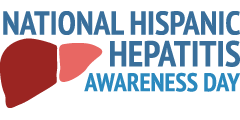
Your Liver
The Liver is the largest internal organ and the largest gland in the human body. Its normal weight is about 1.5 KG (3.3 lbs.). It is located in the right side of the abdominal cavity just under the diaphragm and covered by the rib cage which protects it.
The liver has over 500 functions, therefore plays an important role in the functioning of our body. Of the many functions the liver has, these are the most important:
- It acts like a filter to clean your blood by breaking down things such as alcohol, drugs (prescription, over-the counter and street drugs) and other harmful chemicals, and removes wastes.
- It stores nutrients that you need – such as vitamins, fat and sugar from food – as well as other chemicals, and releases them into your bloodstream when your body needs them.
- It produces some very important chemicals, like the ones needed to make your blood clot and heal after an injury, vitamin D as well as a greenish fluid called bile that helps with the digestion of fats.
- It stores Glycogen, which is source of energy for our body
- The Liver can regenerate itself

